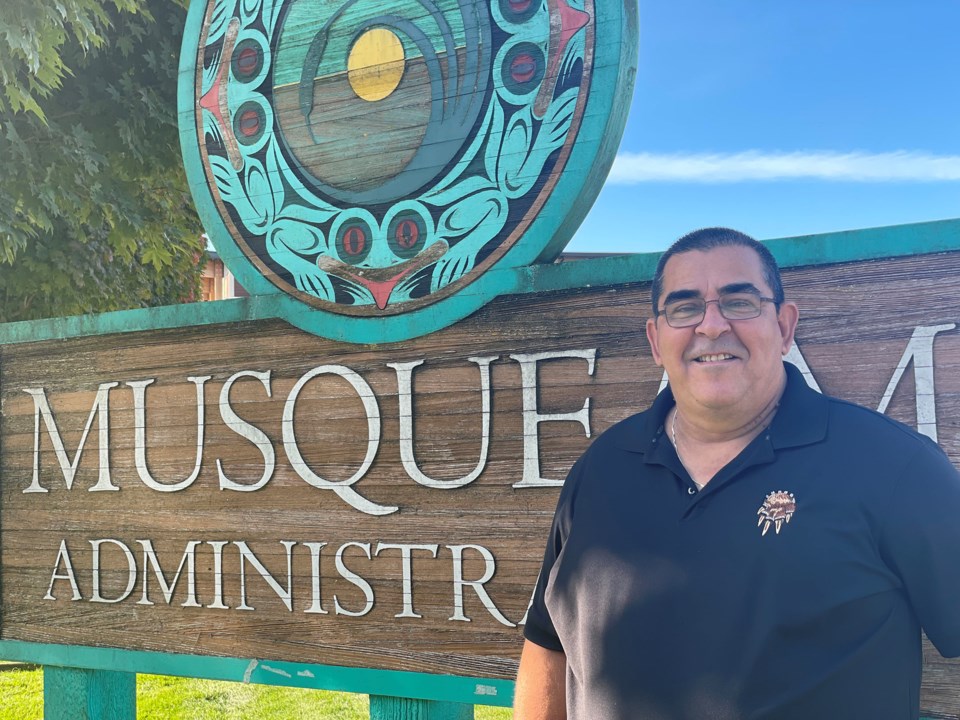Some important things have finally begun, but difficult conversations are still needed in order to continue on the road toward truth and reconciliation.
That’s what Musqueam Indian Band Chief Wayne Sparrow told the Optimist as National Day for Truth and Reconciliation will be observed on Sept. 30, a new federal statutory holiday, which coincides with Orange Shirt Day as a way to honour Indigenous children and educate Canadians about the impact of the residential school system.
Sparrow said numerous recommendations have come forward from the Truth and Reconciliation Commission, however, it received little attention and media coverage, prior to the discovery of 215 children’s remains in unmarked graves at the former Kamloops Indian Residential School site this spring.
“They don’t even have these stories in high schools and young people have no clue about the generations of wrong doings and what Indigenous people still have to deal with,” he said. “Reconciliation means get the truth out there, reconcile it but also hearing some of the concerns and try to bridge those gaps and move forward as a province and a country. We’re only going to get there by having those discussions, and they’re difficult discussions, about what happened. I’m a next generation of someone who went through the residential schools and it’s hard to speak my language because my father got it beat out of him. Imagine if they tried doing that with any other group in this day and age.”
When it comes to the residential school system, the church has a big responsibility, as well as the federal government, when it comes to properly addressing the tragedy, added Sparrow.
The Canadian Conference of Catholic Bishops, a prominent Canadian arm of the Catholic Church, last week issued an apology in a statement acknowledging “the suffering experienced in Canada’s Indian Residential Schools.”
Sparrow also noted that there are still many deeply imbedded stereotypes when it comes to Indigenous peoples, something his own First Nation constantly encounters with government.
“So many times you hear that natives are looking for handouts and a free ride. We have to deal with that all the time. People need to understand where First Nations are coming from. Even with the Musqueam, we have one of the smallest land bases in Canada and had to go to the Supreme Court of Canada several times,” Sparrow said.
Sparrow noted one example of the paternalistic attitude is the Musqueam Indian Band’s dispute with residents who lease houses on the First Nation’s land in South Vancouver in a dispute over lease increases by the Musqueam.
He said his First Nation didn’t have the independence to negotiate their own deals years ago with the government providing sweetheart leases that were unfair for the Musqueam, resulting in a long-running dispute to get back to a level playing field.
“We had to sue the Crown and to this day we’re still under the arm of the Crown. They hand out sweetheart deals and we had to deal with the consequences. So we had to go to the courts to prove what the government did was wrong. This was another example of what we as a First Nation have to deal with and the public needs to know our side in these things. Those are the kinds of stories that need to get out,” he said.
The National Day for Truth and Reconciliation is an important step, he added.



